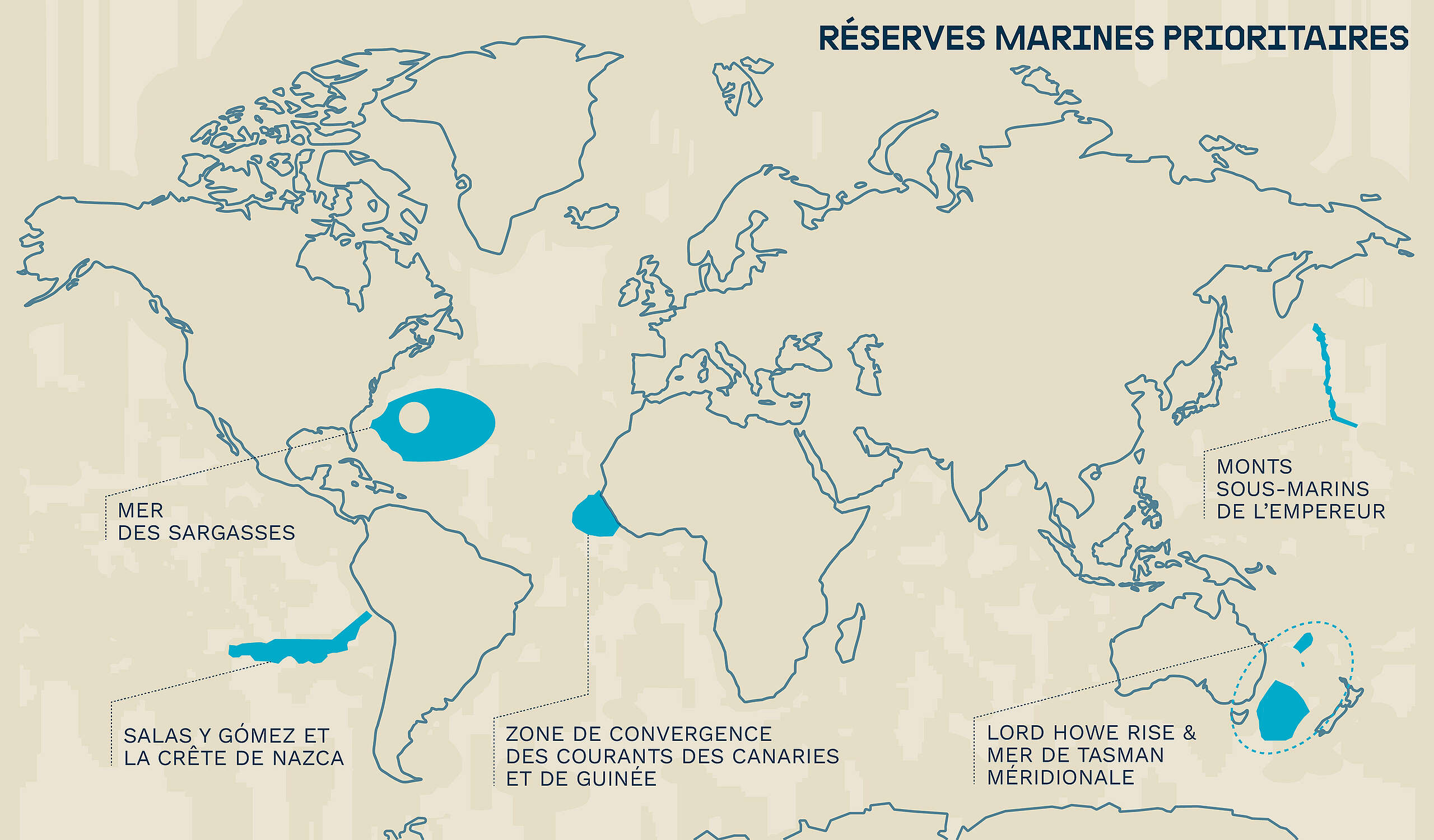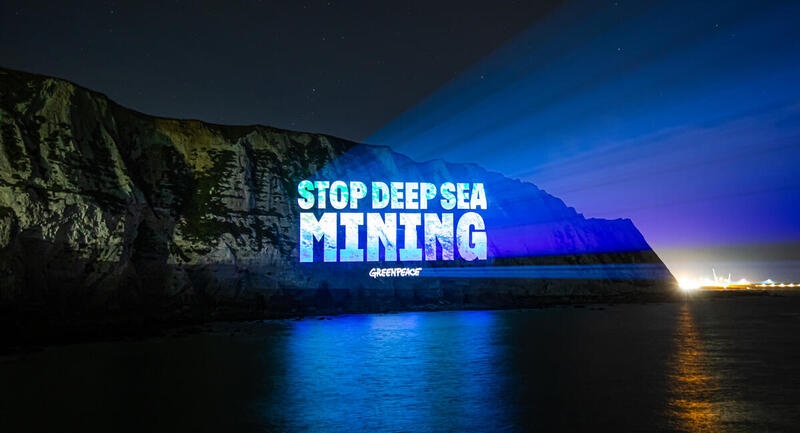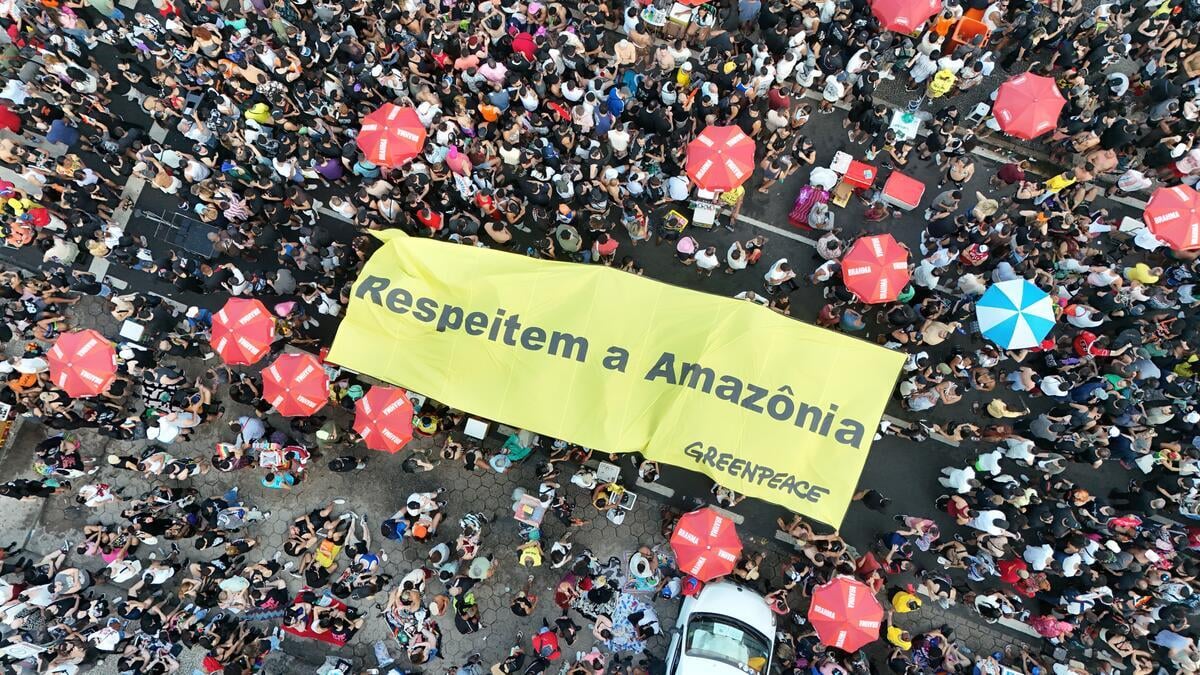Le Conseil de l’AIFM vient de se terminer. Vous trouverez ci-dessous la réaction de Greenpeace International à la presse.
En résumé, voici les points principaux pour nous :
- Le Conseil de l’AIFM a achevé la deuxième lecture du Code minier. Cette deuxième lecture a surtout révélé de nouveaux désaccords entre les États, et aucun consensus n’a été trouvé. Plusieurs mécanismes essentiels du texte législatif, ainsi que les annexes, les normes et les lignes directrices, n’ont pas encore été abordés. Par conséquent, nous sommes encore loin de l’adoption d’un quelconque Code minier
- Suite à de longs débats et il a été finalement décidé d’examiner le contrat d’exploration de “The Metals Company”, au vu de leur demande d’exploitation minière en eaux profondes sous pavillon américain, qui va à l’encontre du cadre multilatéral et de l’Autorité internationale des fonds marins (AIFM). Cet examen est important car le contrat expire l’année prochaine et la société a demandé une prolongation. Ils risquent de perdre leur concession dans la zone de Clarion-Clipperton (CCZ) dans le cadre de l’AIFM. La Belgique a joué un rôle moteur dans cette décision.
La Belgique a été en première ligne des négociations en tant que membre du Conseil de l’AIFM cette année. De ce fait, elle a appelé à une analyse de la demande de The Metals Company de prolonger son contrat d’exploration avec l’AIFM, alors que cette société a depuis déposé une demande d’exploitation aux États-Unis. Cependant, la Belgique est rarement intervenue sur la question de la protection des océans.
Ruth-Marie Henckes, chargée de campagne Océans chez Greenpeace Belgique, suit les négociations de l’AIFM depuis la Jamaïque : « Nous sommes satisfait que la Belgique ait envoyé un signal clair : saper le multilatéralisme, comme le font les États-Unis et TMC, ne sera pas sans conséquence. Mais nous attendions davantage de notre pays en matière de protection de l’environnement, en tant que « leader bleu » et candidat à l’accueil du secrétariat de la Convention sur les océans. La Belgique semble vouloir adopter à la hâte un code minier alors que des questions législatives fondamentales restent en suspens.”
Press release Greenpeace International
The ISA (International Seabed Authority) Council meeting started with governments under heavy pressure from industry to finish negotiations and deliver a Mining Code to deep sea mining corporations. But with public concern over ocean health loud and clear, the Council has ended with a clear signal that this industry will not get international approval anytime soon.
New efforts to fast-track a Mining Code have only highlighted the many unresolved issues that governments must confront before any deep sea mining is even considered.
The international community also decided to take action to show that rogue deep sea mining companies attempting to bypass international law will face consequences. In the first meeting of the ISA since The Metals Company (TMC) submitted the world’s first-ever application to commercially mine the international seabed, governments responded by launching an investigation into whether mining contractors, including TMC’s subsidiaries Nauru Ocean Resources Inc. (NORI) and Tonga Offshore Mining Limited (TOML), are complying with contractual obligations to act in accordance with the international legal framework.
Multiple legal analyses — including a detailed opinion commissioned by Greenpeace International — have concluded that TMC’s move to mine unilaterally via the US constitutes a breach of international law. Crucially, the ISA and States parties to UNCLOS have legal obligations to take action against any unilateral attempts to extract resources in the international seabed outside of the UN framework. [1]
This raises serious concerns about the company’s approach and the broader risks of allowing deep sea mining to start without global consensus and outstanding scientific questions.
Greenpeace International campaigner Louisa Casson, who is attending the meeting, said:
“Despite industry pressure reaching fever pitch, governments have sent a clear signal that the deep sea mining industry will not get international approval any time soon.
“The international community has sent a signal: rogue companies attempting to bypass international law will face consequences. This latest move further shatters The Metals Company’s credibility and serves as a stark warning to others considering this reckless path.
“Governments have also reaffirmed that there should be no deep sea mining in the global oceans while major political and scientific questions remain unresolved.
“As more delegations arrive today to attend the ISA Assembly meeting, they’ll be met by a rising tide of voices — from scientists, Pacific communities, businesses, and concerned citizens — all saying the same thing: deep sea mining is a dangerous gamble we cannot afford, and the only responsible way forward is a global moratorium.”
Note:
[1] From Prof. dr. Seline Trevisanut’s legal opinion: The obligations extend to states and natural or juridical persons having the nationality of a state party (Arts 137.3 and 139.1). This means that UNCLOS parties shall not engage with any illegal activity performed on the basis of licences granted pursuant to the Executive Order, and that they shall prevent their nationals from participating in the said activities.
Photos available HERE
Contact
Service presse Greenpeace 0496 26 31 91 – [email protected]
Ruth-Marie Henckes suit les négociations de l’AIFM depuis la Jamaïque.



